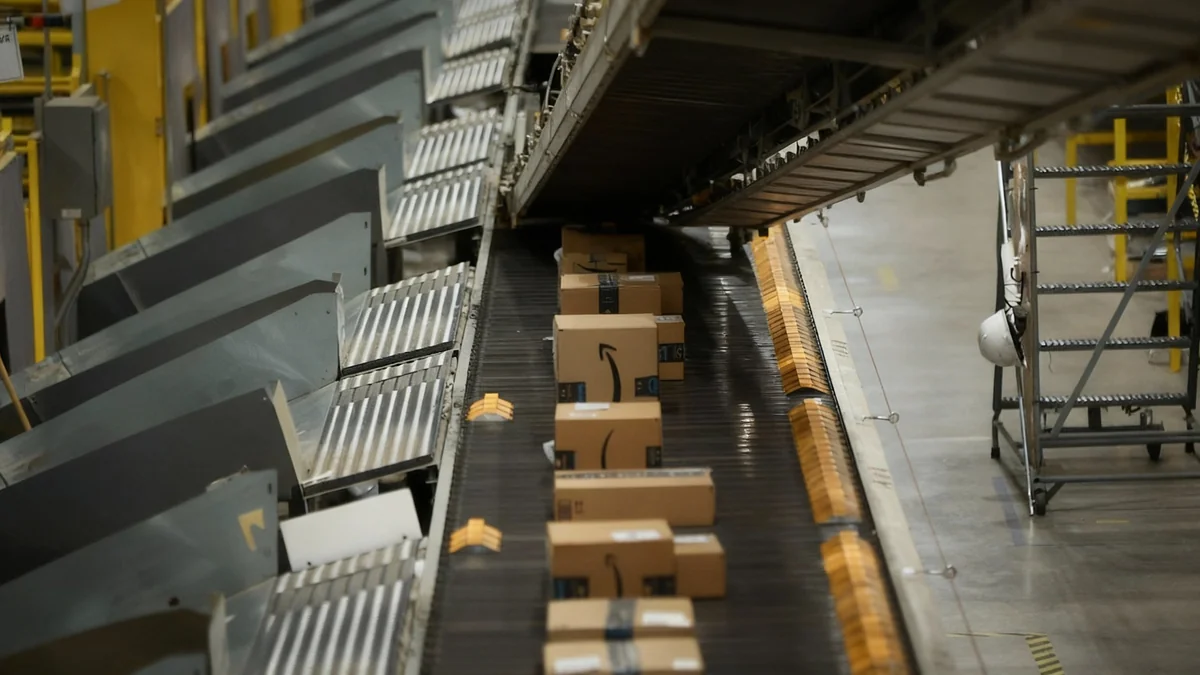Major corporations like Accenture and IBM are simultaneously reducing their workforce and investing heavily in artificial intelligence, creating a paradox in the modern job market. While AI is driving unprecedented efficiency, new research indicates a significant gap between its implementation and the workforce's readiness to use it effectively.
Recent surveys of over 1,000 U.S. companies reveal that while more than half now rely on AI for daily decisions, a staggering 62% of them do not believe their employees are prepared for this shift. This disconnect is redefining not just which jobs are available, but what skills are truly valuable in an automated world.
Key Takeaways
- Over 50% of U.S. companies now use AI for daily decision-making, yet only 38% feel their workforce is prepared.
- Companies show a contradiction: they trust AI for business operations but are skeptical of job candidates who use AI tools.
- The most valuable skills are shifting from technical coding to human judgment, adaptability, and the ability to question AI outputs.
- Employee trust in leadership and systems is a critical factor in successful AI adoption and innovation.
- New hybrid roles like 'AI Translator' and 'Digital Coach' are emerging to bridge the gap between machine intelligence and business strategy.
The Great Disconnect: Adoption vs. Readiness
The landscape of the American workforce is undergoing a seismic shift, driven by artificial intelligence. Companies are adopting AI at a rapid pace to streamline operations and enhance decision-making. Data from a summer 2025 survey of 550 U.S. businesses shows that a majority have integrated AI into their core daily functions.
However, the same study highlights a critical vulnerability: a widespread lack of employee preparedness. Only 38% of these organizations are confident that their staff possess the necessary skills to work alongside these sophisticated systems. This readiness gap is most pronounced in customer-facing roles like marketing and sales, areas where automation is advancing quickly.
A Contradiction in Hiring
A separate survey of 470 employers uncovered a peculiar double standard. While companies increasingly depend on AI for internal strategy, only 27% of their recruiters are comfortable with job applicants using AI tools for tasks like resume writing or salary research. This sends mixed signals to the workforce about what constitutes acceptable and responsible use of AI.
This situation creates a challenging environment for workers. The technology is evolving far more quickly than traditional training programs and hiring practices can keep up. Many employers, for instance, have not yet updated their degree or credential requirements to reflect the growing need for AI literacy, continuing to hire for yesterday's skill sets while demanding tomorrow's capabilities.
Beyond Technical Skills: The Rise of Human-AI Fluency
As automation handles more routine tasks, the skills that define an invaluable employee are changing. The focus is shifting away from pure technical ability, like coding, and toward a more nuanced set of human-centric skills centered on judgment, critical thinking, and adaptability.
Experts are beginning to refer to this new competency as "human-AI fluency." This is not about being able to build an AI model, but about being able to work with one. It involves questioning the outputs of intelligent systems, understanding their limitations, and translating machine-generated insights into actionable human strategy.
The Real Hurdles to AI Expansion
When companies were asked about their biggest challenges in scaling AI, the top answers were not technical. They cited issues like ensuring ethical and regulatory compliance, connecting AI initiatives to tangible business goals, and fostering trust in the technology—all problems that require human oversight and judgment.
This new paradigm calls for what some call "digital bilingualism": the ability to fluently navigate both the logic of machines and the complexities of human reasoning. The future workforce will be defined not by those who can follow instructions from an AI, but by those who can collaborate with it as a partner.
Trust as the Foundation for Adaptability
For employees to adapt, they must feel psychologically safe to learn and experiment. The research indicates a strong correlation between organizational trust and successful AI integration. Companies with high levels of trust and strong governance frameworks were nearly twice as likely to report significant gains in performance and innovation from their AI investments.
"When people trust their leaders and systems, they’re more willing to experiment and learn from mistakes. In that way, trust turns technology from something to fear into something to learn from, giving employees the confidence to adapt."
However, there appears to be a disconnect in how companies are fostering this environment. While 86% of employers offer some form of internal training or online boot camps, the focus often remains on traditional job skills. The same hiring survey found that only 36% of employers consider AI-related skills important for the entry-level roles they are currently filling.
The most successful companies are embedding learning directly into the workflow. They encourage teams to experiment with AI tools on real projects, creating a culture where adaptation is part of the job itself. The goal is not just to train people to use AI, but to help them think alongside it.
The New Hybrid Roles Defining the Future of Work
The changes driven by AI are not just eliminating jobs; they are creating entirely new categories of work that blend technical understanding with human insight. Companies leading in AI adoption are redefining roles to prioritize this synthesis.
We are seeing the emergence of several new hybrid professions:
- AI Translators: These professionals act as intermediaries between data science teams and executive leadership. They explain what AI insights mean in a business context and help leaders make informed decisions based on complex data.
- Digital Coaches: These individuals work within teams to teach employees how to effectively collaborate with intelligent systems, improve workflows, and build confidence in using new AI tools.
- Ethics and Compliance Specialists: As AI becomes more powerful, these roles are critical for navigating the complex regulatory and ethical landscape, ensuring that AI is used responsibly and fairly.
These positions underscore a fundamental truth about the future of employment. The greatest value will not come from artificial intelligence alone, but from the partnership between human judgment and machine intelligence. The new competitive advantage for both companies and employees is the ability to turn raw data, whether from a human or a machine, into real-world value.





